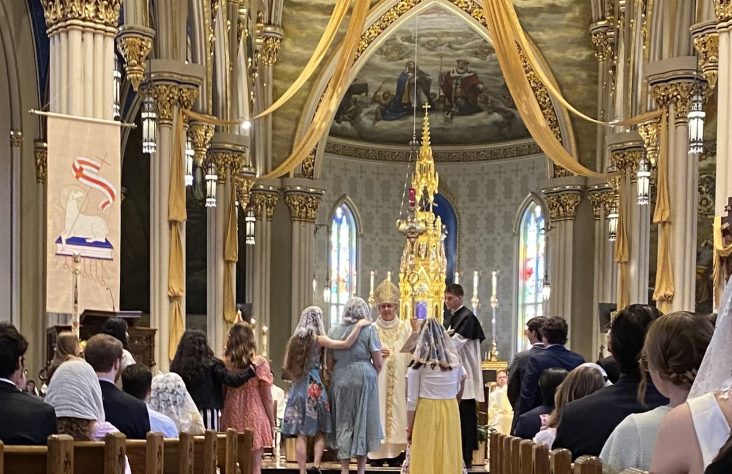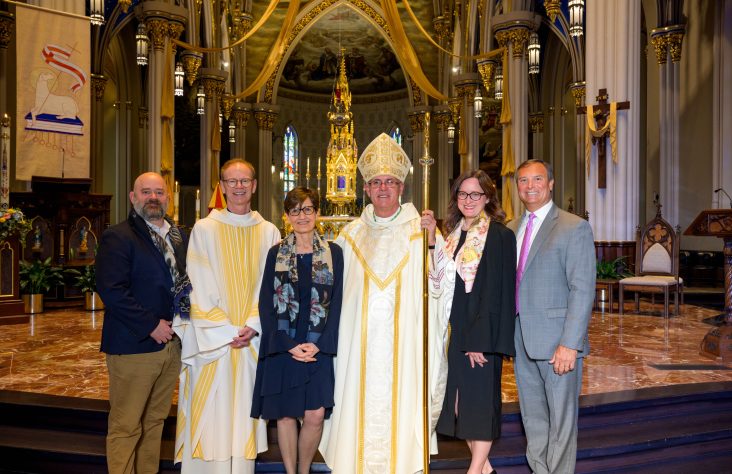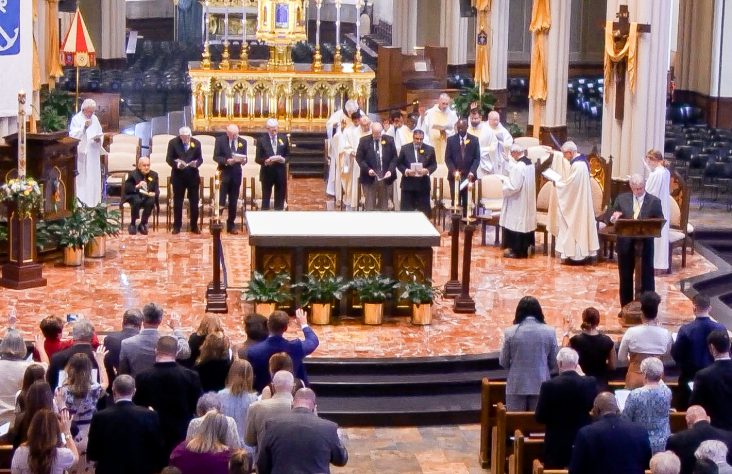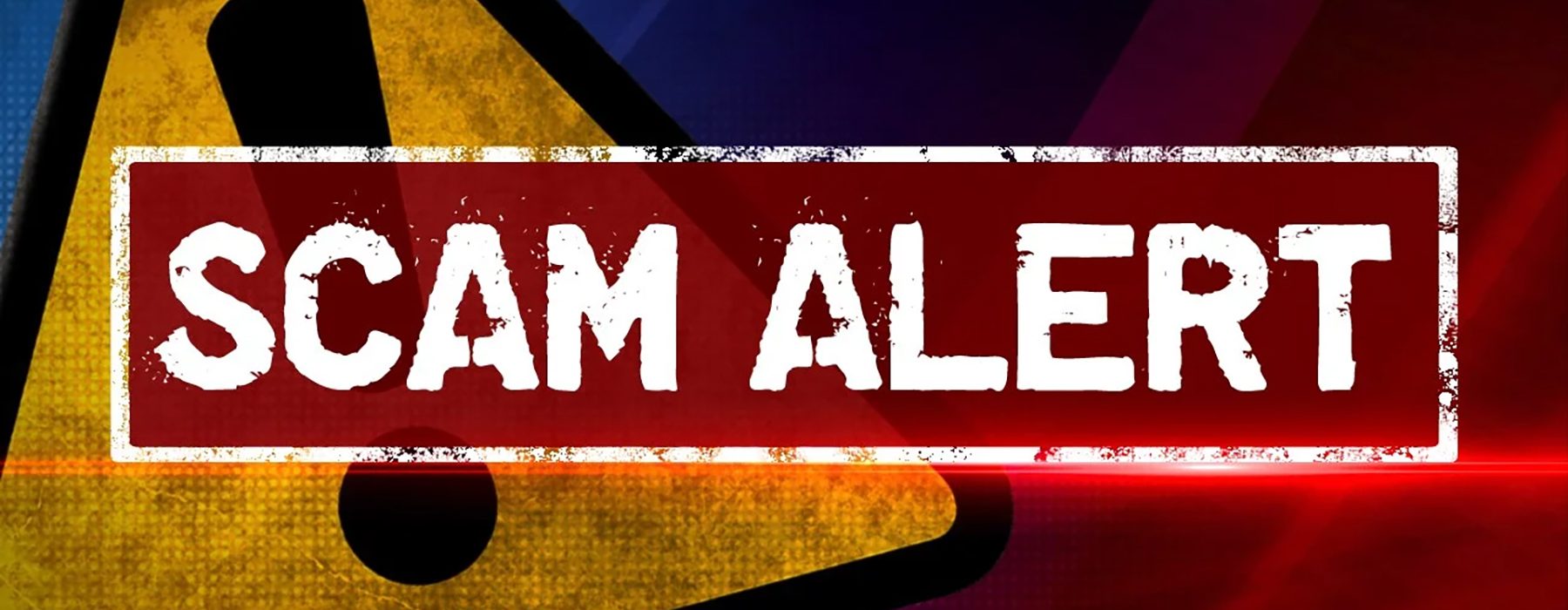April 2, 2024 // Diocese
Warning: How I Nearly Got Scammed By a Thief Posing as My Pastor
The email that arrived in my inbox one evening seemed perfectly normal, so I did not realize that it had the potential to make me the victim of a crime and lose $2,000.
The email looked like the address of my pastor at St. Anthony de Padua Parish, Father Arthur Ssembajja. He wrote that he wanted to reward the dedication of the parish staff by presenting each of them with a $100 Amazon gift card. He was too busy to get out to buy the cards, he wrote, so he asked if I would buy 20 $100 cards, and he would reimburse me with a check. He said it was a surprise for the staff, so not to tell anyone, and I should keep one card as a reward for running this errand.
I was a member of the parish council, so Father Ssembajja knew that I, like many other parishioners, appreciate his dedication to our parish and try to be helpful when we can. So, I replied to the email and told him I did not want a reward for helping him and would get 20 gift cards the next day and drop them by the rectory and pick up his $2,000 check.
The next morning, I found another email from the same address that looked like Father Ssembajja’s, saying not to bring the cards to the rectory because they were a surprise. Instead, he wrote, I should reveal the pin number on the back of each card, photograph those numbers, and email them back to him.
Thankfully, the alarm bells went off in my head, and the questions I had considered when I got the email resurfaced: Why didn’t he order the cards online himself? Why was he gifting the staff when it wasn’t a holiday? We don’t have 20 people on staff at my parish, unless he was adding school staff, and then that would exceed 20. Why this amount? Have the collections been that good recently?
The next step, of course, was to contact Father Ssembajja, who was shocked to hear that someone had used his name to try to extract money from his parishioners. He advised me to call the police, which I did, but they told me there was no way to trace the gift cards and that is why scammers use this technique.
For the next two days, I received follow-up emails from the scammer, asking if I had purchased the gift cards yet. I was advised not to reply, though I wanted to give them a piece of my mind. I felt it was particularly onerous that scammers would target people by using their pastors’ names, since most churchgoers respect and trust their pastors.
I continued to be troubled about how the scammer got my email address and connected it to my parish and my pastor. Was it someone who knew me?
My son solved that mystery by asking if my email address ever appeared in our parish bulletin. It indeed has: I am the coordinator of our parish Senior Fellowship lunches, and I had put my email address in the parish bulletin for RSVPs. And Father Ssembajja’s name and email address are in all bulletins. Like most parishes, our bulletins can be read on the internet by anyone in the world.
Since my experience, I have learned from dozens of online news stories that this scam has become more common throughout the past five years, with parishioners losing tens of thousands of dollars to fraud. Furthermore, the scams are getting more sophisticated.
For example, the Greater Northwest News of the United Methodist Church reported on Friday, March 8, that in Wenatchee, Washington, a scammer posing as a known parishioner of the local Methodist church emailed the parish office to report a “new” email address. She also asked for a copy of the church directory, which was sent.
Thereafter, the pastor phoned the parishioner to confirm the address change and learned the woman had made no such request for the email change or for the directory. The pastor realized that now an outsider had possession of all the parishioners’ email and contact information and immediately warned parishioners to be alert for a scam of some kind.
That scam subsequently showed up in some parishioners’ emails that looked legitimate and were signed by the pastor, asking for four $500 gift cards for a “discreet favor” to be sent to that “new” email address.
Other reported scams were allegedly from pastors or ministers asking the congregation to send gift cards to help pay medical bills for an ill parishioner or to help feed a poor family. Other pastors and parishioners at parishes throughout our diocese have reportedly been targeted, as well.
The Federal Trade Commission issued a consumer alert about the scam that is believed to have originated in Nigeria. The FTC urges victims to call the company who issued the gift card as soon as possible and to report the scam to their agency at ftc.gov/complaint. This could help law enforcement agencies prevent such fraud.
Father Ssembajja told Today’s Catholic that parishioners should “never trust anything that comes from an unofficial email address from the pastor or any parish staff. Pastors and parish staff don’t communicate official parish things using personal emails.”
Even if an email address looks official, he added, “As a rule of thumb, don’t be quick to engage in any transaction that involves money without confirming with the person ‘supposedly’ it is from.”
The best news. Delivered to your inbox.
Subscribe to our mailing list today.







